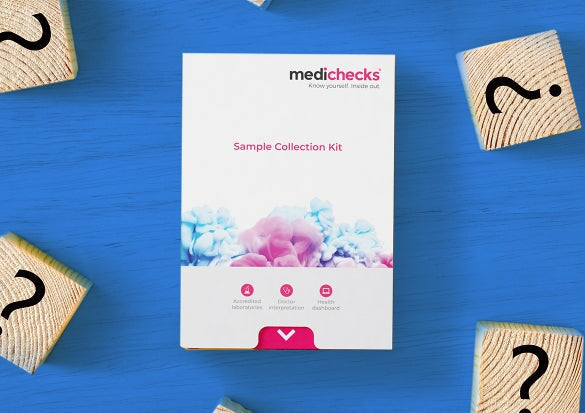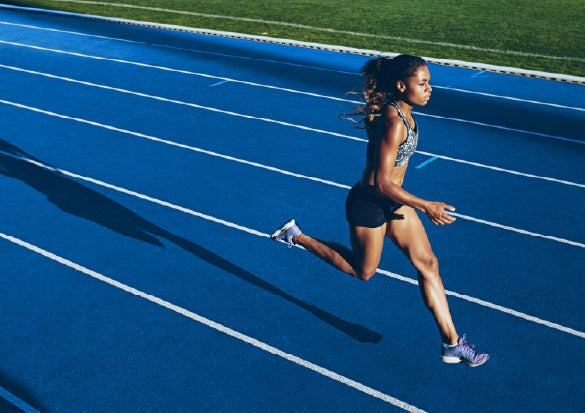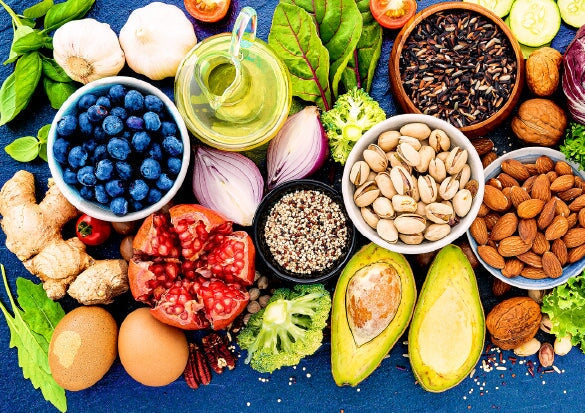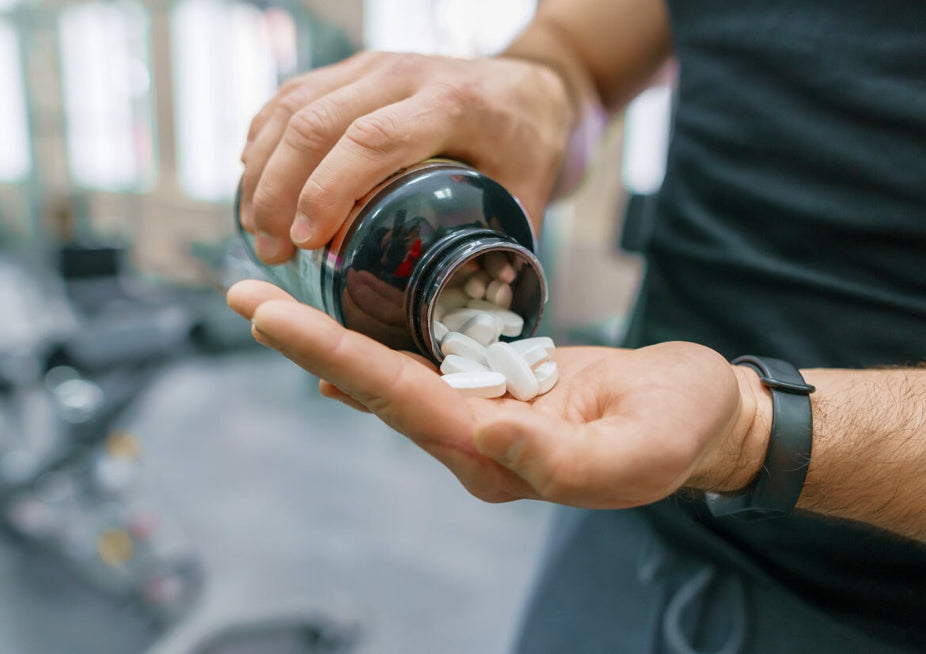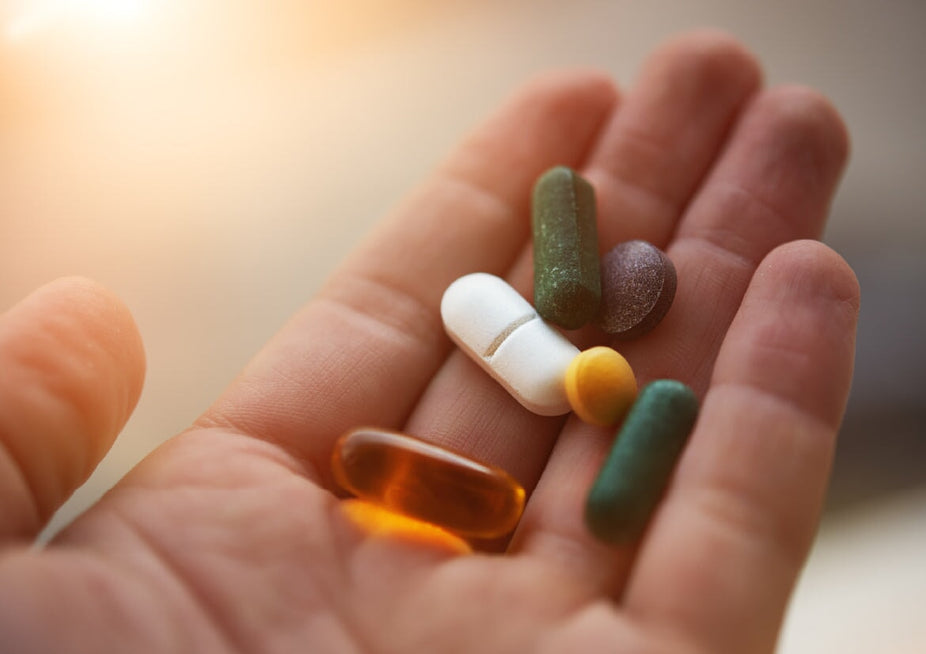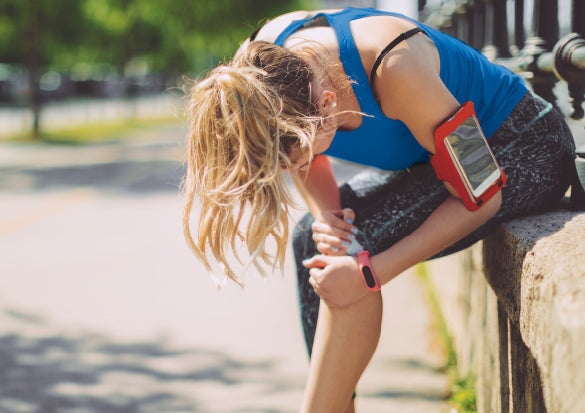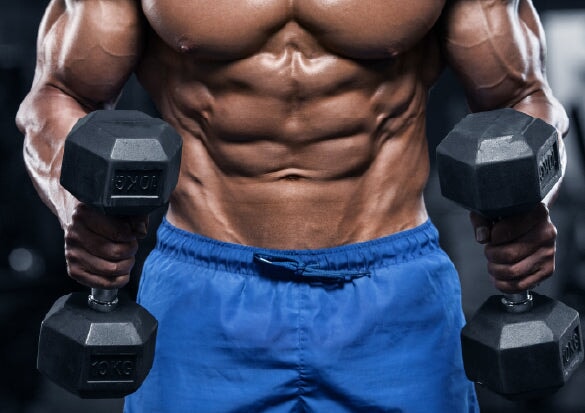Top tips for sports nutrition
Food is fuel and a cornerstone for any athlete. Find out what to eat and when.
Nutrition (aka, your food or nourishment) is vital for everyone, but even more so for athletes. For professional athletes, what food and drink go into the body is just as important as training and recovery programmes. Getting nutrition spot on before and after training sessions can help you perform better and recover faster.
Good nutrition for athletes doesn’t always mean chicken, rice, and broccoli. Often when thinking of sports and nutrition, people automatically think of protein. But protein isn’t the only thing to consider when trying to reach optimal performance, micronutrients and macronutrients need to be considered, too. Finding the right nutrition plan can sometimes be daunting, but a sports coach or registered nutritionist can help.
To help you eat your way to the top, this blog explains all on:
Top tips for sports nutrition
1. Mix it up
Sticking to the same foods every day may mean you’re missing out on vitamins and minerals. Mixing up what you eat and getting creative in the kitchen can help you create much more nutrient-dense food.
If you love your rice and broccoli, you could try quinoa and Mediterranean vegetables instead – giving you a whole new variety of tastes and vitamins and minerals.
For some meal inspiration, we’ve put together some breakfast, lunch, and dinner ideas below.
2. Know your carbs
One myth when you’re training is that carbs aren’t your friend – however, this is dependent on the carbohydrate. Most carbohydrates like bread and pasta can be a great source of sustainable energy.
Good sources of carbohydrates include:
- Rye bread
- Sweet potatoes
- Buckwheat
Refined carbohydrates, such as cakes and sugary cereals, should be limited as they don’t provide the same sustained energy and have less nutritional value.
3. Get protein rich
There’s a reason protein is always linked to sports and nutrition – it is vital in recovery. Protein is required to promote growth and repair damaged cells and tissues [1].
Choosing a variety of protein-rich foods can help provide the body with the right quantity and quality of proteins.
Good protein sources include:
- Lean meat
- Dairy
- Nuts
- Seeds
- Pulses
- Quinoa
- Tofu
If you eat a plant-based diet and are looking for more protein sources, see our plant-based diets and athletes blog for more ways to increase your protein.
4. Keep hydrated
Keeping the body hydrated helps with many bodily processes and promotes good health. It helps to maintain body temperature and helps to flush any toxins and wastes out [2].
As an athlete, hydration is even more important because you will more likely be losing more water through sweating and respiration when exercising.
To stay hydrated, try carrying a bottle of water with you wherever you go and keep filling it up. The NHS recommends drinking six to eight glasses of water a day, but it is recommended to drink more if exercising.
If it’s hot and you’re training intensely, you could consider sipping from water containing an electrolyte tablet to help retain a steady vitamin and mineral balance.
5. Understand fasted training
Fasted training is a term used to describe those early morning sessions you do pre-breakfast i.e. that 5 am run. Training pre-breakfast can be useful sometimes for runners training for long-distance events (e.g. a marathon), and some evidence shows that it can burn more fat [3].
Fasting is not recommended for long-term and long distances. Food is ultimately fuel, and not having enough can mean that you may not be able to perform as well or recover as fast.
6. Fuel your body right
Fuelling your body at the right times can be vital in certain training regimes – especially running. If you’re not looking to do fasted training, then a good rule of thumb is to limit your pre-run meal to about 300-400 calories and eat it approximately three hours before training [4].
If you are wanting to eat an hour to two hours before running, a smaller 200-calorie meal such as a wholemeal bagel could be a better option.
Your pre-training meal should contain foods that are high in carbohydrates, low in fat, and have moderate amounts of protein. It’s worth monitoring your high fibre foods pre-workout though, as this can cause digestive discomfort when exercising.
Foods to have pre-training include:
- Bananas
- Homemade energy bars
- Wholegrain bagels
- Wholegrain oatcakes
You can read more about fuelling your body the right way in our macros vs micros section.
7. Plan your day
Planning your food around your training can help you to keep your energy levels up and stay motivated.
If you are planning on exercising in the evening, adjust your food intake accordingly. Have a healthy mid-morning and mid-afternoon snack, such as dried mango or a banana. This will help make sure you have enough energy to fuel your run without filling you up so much that you feel lethargic and sluggish.
8. Find your kick
Some athletes find that coffee or other sources of caffeine (often found in energy drinks or pre-workout powder) can give them a boost when training. But for others, it may cause unwanted side effects such as an increased heart rate and stomach discomfort. Make sure you try different options in training before a race or competition.
Sports-specific products such as energy bars, drinks, or gels can have a role at the right time during competitions and races. But you should still be getting most of your energy and nutrients from your day-to-day diet.
Foods to help boost your energy include [5]:
- Cheese and crackers
- Thick and creamy yoghurt
- Nuts and seeds
- Peanut butter
- Dark chocolate
How to plan your meals when training
1. Get organised
The main reason for athletes arriving at training sessions tired or under-fuelled is lack of planning. Planning your day or week can help you to get the right meals at the right times and optimise your training.
If you were taking your car out on a long journey, you’d make sure that it had fuel before you left, so treat your body like the racing car it is.
2. Plan for the unexpected
Some days you may not fancy what you had planned, so make sure your meal planning is flexible.
Have a mix of healthy snacks prepared for the unexpected. It’s quite easy to fall off the wagon and grab something like a chocolate bar, rather than a homemade energy bar that you haven’t yet baked.
Make and have foods that you crave too – adding dark chocolate chips to homemade energy bars can be a great way to curb that sweet tooth.
If you’re stuck on meal planning ideas, see some of our ideas below.
3. Link your training to your nutrition
On days when you have more intense training planned, you will need a higher calorie intake to help make up for the extra calories you’ve burnt.
For days with higher intensity training, it’s best to put extra focus on ensuring a good level of carbohydrates and protein to help with the loss of energy and ensure optimum recovery.
4. Get creative
Scratch cooking doesn’t always take as much time as we think. High-quality meals, cooked from scratch in under 30 minutes can be made possible.
Joe Wicks (The Body Coach) has some great healthy recipes that can be made in less than 20 minutes. Reducing the amount of time cooking from scratch can help you enjoy your time in the kitchen - and keep you motivated to stick with nutrient-dense foods!
Healthy meal ideas
1. Breakfast super-shake
This breakfast super-shake by BBC good food is the perfect morning fuel to set you up for the day. It can quite easily be adapted for vegans by switching out the milk and yoghurt for dairy-free options and the honey for golden or agave syrup.
Ingredients
- 100ml full-fat milk
- 2 tbsp natural yoghurt
- 1 banana
- 150g frozen fruits of the forest
- 50g blueberries
- 1 tbsp chia seeds
- ½ tsp cinnamon
- 1 tbsp goji berries
- 1 tsp mixed seeds
- 1 tsp honey (ideally Manuka)
Method
- Put the ingredients in a blender and blitz until smooth. Pour into a glass and enjoy!
2. Tuna, avocado, and quinoa salad
This high-protein meal (with healthy fats included in the avocado) by BBC good food is the perfect post-workout lunchtime meal for any athlete. If you’re vegan, try switching out the tuna for tofu.
Ingredients
- 100g quinoa
- 3 tbsp extra virgin olive oil
- juice 1 lemon
- ½ tbsp white wine vinegar
- 120g can tuna, drained (or tofu)
- 1 avocado, stoned, peeled and cut into chunks
- 200g cherry tomatoes on the vine, halved
- 50g feta, crumbled (or dairy-free alternative)
- 50g baby spinach
- 2 tbsp mixed seeds, toasted
Method
- Rinse the quinoa under cold water. Tip into a saucepan, cover with water and bring to a boil. Reduce the heat and simmer for 15 mins until the grains have swollen but still have some bite. Drain, then transfer to a bowl to cool slightly.
- Meanwhile, in a jug, combine the oil, lemon juice and vinegar with some seasoning.
- Once the quinoa has cooled, mix with the dressing and all the remaining ingredients and season. Divide between plates or lunchboxes.
3. Thai squash and pineapple curry
Shake up curry night with this BBC good food meat-free, vegan-friendly curry, enhanced with Thai flavours.
Ingredients
- 1 tbsp vegetable or sunflower oil
- 1 onion, chopped
- 4 tsp Thai red curry paste
- medium butternut squash (about 500g/1lb 2oz) peeled, deseeded and cut into chunks
- ½ x 400ml / 14 fl oz can of reduced-fat coconut milk
- 200ml vegetable stock
- 140g frozen green beans
- 237g can pineapple chunks in natural juice, drained
- coriander leaves, chopped and leaves to garnish
Method
- Heat the oil in a wok or pan. Fry the onion for 5 mins until softened. Stir in the red curry paste, then add the squash, coconut milk and stock. Simmer for 15-20 mins until the squash is tender. After 10 mins cooking, tip in the green beans.
- Stir in the pineapple and coriander, cooking for just a few mins until the pineapple heats through. Sprinkle with the coriander leaves and serve the curry in bowls with noodles or rice.
References
- Kreider, R. and Campbell, B., 2009. Protein for Exercise and Recovery. The Physician and Sportsmedicine, 37(2), pp.13-21.
- nhs.uk. 2022. [online] Available at: <https://www.sath.nhs.uk/wp-content/uploads/2020/12/The-Importance-of-Hydration-Article.pdf> [Accessed 9 May 2022].
- Men's Journal. 2022. Fasted workouts. [online] Available at: < https://www.mensjournal.com/food-drink/fasted-workouts-new-thinking-and-latest-science/ > [Accessed 9 May 2022].
- TTP Cambridge Half Marathon. 2022. Running With Us - Nutrition tips - TTP Cambridge Half Marathon. [online] Available at: <https://cambridgehalfmarathon.com/news/running-with-us-nutrition-tips/#:~:text=A%20good%20rule%20of%20thumb,and%202%20hours%20before%20running.> [Accessed 9 May 2022].
- uk. 2022. [online] Available at: <https://www.nhs.uk/ipgmedia/National/British%20Dietetic%20Association/assets/MalnutritionFoodFactSheet.pdf> [Accessed 9 May 2022].
Related tests
Are you looking to transform your body through diet and exercise and track your progress along the way?
Our Ultimate Blood Test is designed for those who want to take their health and fitness to the next level — whether you're an athlete, biohacker, or simply someone who's serious about...
- Results estimated in 3 working days
- 56 biomarkers
Venous collection
Select test

